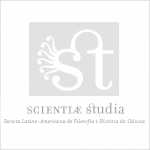Technological risks, transgenic agriculture and alternatives
Vol. 12 • Scientiae Studia
Autor: Pablo Rubén Mariconda
Resumo:
After discussing the transformation of age-old agricultural practices that has been occurring since the mid nineteenth century, and its impact on the natural environment, I identify four features of technology that point to the ambiguity of the idea of "technological progress". These are linked to the intrinsic unpredictability (and uncertainty) of technological applications and have implications for evaluating technological risks. I then show that large scale technological applications and innovations - such as expanding the practice of smallpox inoculation in the second half of the eighteenth century - occur in states of 'technological exception'. In them, values are suspended and rules, limits and security norms are absent; and, in the face of risks, losses and harm to health and environment that are occasioned by technological applications introduced in the name of economical progress (development), normal social inhibitions become suspended in the name of furthering the values of capital and market. In addition, I show that maintaining technological exception has favored, on the one hand, the development by large corporations of antiscientific practices that threaten the moral integrity (ethos) of science by impeding the proper use of the scientific method for evaluating the consequences of using technologies that are protected by patents; and, on the other hand, under the cover of ignorance, continued deterioration of the environment that threatens the very survival of the human species.
DOI: http://dx.doi.org/10.1590/S1678-31662014000400005
Texto Completo: http://www.scielo.br/scielo.php?script=sci_arttext&pid=S1678-31662014000500005&lng=pt&nrm=iso&tlng=en
Palavras-Chave: Technology,Technological risk, Pluralism of S

Scientiae Studia
Associação Filosófica Scientiae Studia - Revista Scientiae Studia
